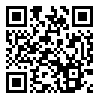Volume 42, Issue 2 (2024)
jmciri 2024, 42(2): 58-66 |
Back to browse issues page
Download citation:
BibTeX | RIS | EndNote | Medlars | ProCite | Reference Manager | RefWorks
Send citation to:



BibTeX | RIS | EndNote | Medlars | ProCite | Reference Manager | RefWorks
Send citation to:
Mohabbatpour F, Keshavarz S, Shams Esfandabad H. Comparison of Psychological Well-being, Cognitive Flexibility, and Coping Styles Among Female Nurses and Teachers in Tehran. jmciri 2024; 42 (2) :58-66
URL: http://jmciri.ir/article-1-3230-en.html
URL: http://jmciri.ir/article-1-3230-en.html
Department of Psychology, Faculty of Social Sciences, Imam Khomeini International University, Qazvin, Iran
Abstract: (1990 Views)
Abstract
Background: The coronavirus pandemic significantly affected the education and healthcare sectors, with a notable impact on the mental health of teachers and nurses. The virus has deeply affected people’s mental health and its negative effects are still felt. This study aims to compare the psychological well-being, cognitive flexibility, and coping styles between female nurses and teachers in Tehran.
Method: The study’s statistical population consisted of 50 female teachers and 50 female nurses in Tehran in 2022. Data were collected using the Psychological Well-Being Questionnaire (Ryff, 1989), the Cognitive Flexibility Inventory (Dennis et al., 2010), and the Coping Styles Questionnaire (Cassidy and Long, 1996). The data were analyzed using multivariate analysis of variance (MANOVA).
Results: The study revealed significant differences between teachers and nurses in terms of psychological well-being and cognitive flexibility. Specifically, significant differences were found in the components of psychological well-being, including environmental mastery, positive relations with others, purpose in life, and self-acceptance. For cognitive flexibility, significant differences were observed in the perception of different options, perception of controllability, and perception of behavior justification. Additionally, teachers and nurses showed significant differences in problem-solving helplessness, problem-solving control, problem-solving confidence, and avoidance coping styles. However, no significant differences were found in creativity and orientation coping styles between the two groups. Overall, teachers exhibited higher levels of psychological well-being and cognitive flexibility compared to nurses.
Conclusion: The results of this study indicate that both nurses and teachers, who were directly impacted by the coronavirus pandemic, experienced significant psychological strain and damage. However, nurses, who faced greater work-related stress due to their direct exposure to the virus, exhibited lower cognitive flexibility and psychological well-being compared to teachers. Nurses also tended to use more emotion-focused coping strategies. Therefore, when developing therapeutic interventions for those affected by the pandemic, special attention should be given to the psychological health of these high-risk groups, particularly nurses.
Background: The coronavirus pandemic significantly affected the education and healthcare sectors, with a notable impact on the mental health of teachers and nurses. The virus has deeply affected people’s mental health and its negative effects are still felt. This study aims to compare the psychological well-being, cognitive flexibility, and coping styles between female nurses and teachers in Tehran.
Method: The study’s statistical population consisted of 50 female teachers and 50 female nurses in Tehran in 2022. Data were collected using the Psychological Well-Being Questionnaire (Ryff, 1989), the Cognitive Flexibility Inventory (Dennis et al., 2010), and the Coping Styles Questionnaire (Cassidy and Long, 1996). The data were analyzed using multivariate analysis of variance (MANOVA).
Results: The study revealed significant differences between teachers and nurses in terms of psychological well-being and cognitive flexibility. Specifically, significant differences were found in the components of psychological well-being, including environmental mastery, positive relations with others, purpose in life, and self-acceptance. For cognitive flexibility, significant differences were observed in the perception of different options, perception of controllability, and perception of behavior justification. Additionally, teachers and nurses showed significant differences in problem-solving helplessness, problem-solving control, problem-solving confidence, and avoidance coping styles. However, no significant differences were found in creativity and orientation coping styles between the two groups. Overall, teachers exhibited higher levels of psychological well-being and cognitive flexibility compared to nurses.
Conclusion: The results of this study indicate that both nurses and teachers, who were directly impacted by the coronavirus pandemic, experienced significant psychological strain and damage. However, nurses, who faced greater work-related stress due to their direct exposure to the virus, exhibited lower cognitive flexibility and psychological well-being compared to teachers. Nurses also tended to use more emotion-focused coping strategies. Therefore, when developing therapeutic interventions for those affected by the pandemic, special attention should be given to the psychological health of these high-risk groups, particularly nurses.
Send email to the article author
| Rights and permissions | |
 |
This work is licensed under a Creative Commons Attribution-NonCommercial 4.0 International License. |





